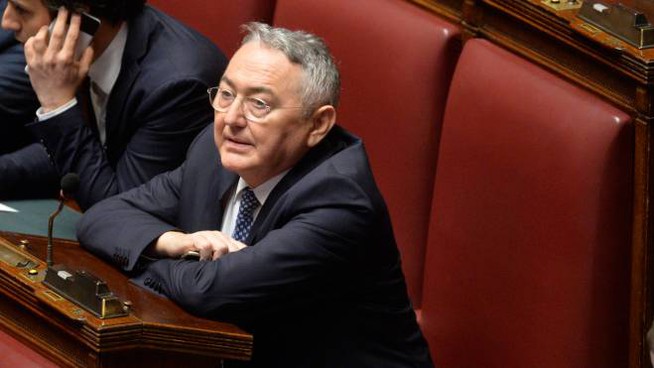On Wednesday, April 14, 2021, Emilio Carelli, a member of the Italian Parliament, presented a question for written response to the Minister of Foreign Affairs and International Cooperation. His question focused on the situation of human rights violations in Bahrain, including concerns that “the increased use of the death penalty, the perpetrated use of torture against detainees and the persecution of human rights defenders, lawyers and activists, are on the rise and the pandemic of Covid-19 has contributed to worsening conditions of detention, endangering the health of opponents and political prisoners held in prison.”
This MP cited the complaints made by ADHRB to the Italian Embassy in Manama, noting the fact that we had not yet received a response from the Embassy. He also cited an urgent EU Resolution passed in March 2021 by an overwhelming majority which called on “Member States to systematically raise the issue of human rights violations in Bahrain.”
ADHRB welcomes this question, and thanks Mr. Carelli for raising attention to the ongoing human rights violations in Bahrain. We look forward to reading the Ministry’s written response.
The full text of the question, translated from Italian, is as follows:
Question for written answer 4-08918
presented by
CARELLI Emilio
text of
Wednesday 14 April 2021, session no. 486
CARELLI . – To the Minister of Foreign Affairs and International Cooperation . – To know – provided that:
Human rights violations in Bahrain, including the increased use of the death penalty, the perpetrated use of torture against detainees and the persecution of human rights defenders, lawyers and activists, are on the rise and the pandemic of Covid-19 has contributed to worsening conditions of detention and endangering the health of opponents and political prisoners held in prison;
since the beginning of the peaceful pro-democratic protests in 2011, the Bahraini government has intensified its repression and control over civil society through the interrogation, arrest and incarceration of activists, journalists, political leaders and religious figures;
Human Rights Watch and Amnesty International reported that courts have stripped dozens of dissidents, journalists and lawyers of their citizenship as punishment for crimes that include peaceful criticism of the government. In 2017, the authorities shut down the only independent newspaper in the country and the opposition parties. Members of dissolved opposition parties were banned from participating in parliamentary elections in November 2018;
With the outbreak of the Covid-19 pandemic, the Bahraini regime has proved unable to protect the health of prisoners, as political prisoners are often denied medical treatment, in contravention of the United Nations Standard Minimum Rules for the Treatment of Detainees;
in April 2020, 19 human rights organizations signed an official request for Bahrain to release political prisoners with previous illnesses that could make them particularly vulnerable to Covid-19;
the Gulf Center for Human Rights has published a report in which it analyzes the ways in which institutions resort to torture against civil society in Bahrain, listing, among the most frequent: sleep deprivation; the obligation to stand; the use of electric shock and cigarette burns; threats of rape, sexual abuse, rape, forced isolation; exposure to very high temperatures; and humiliation and other degrading treatment;
Bahraini authorities discriminate against the country’s Shia majority in most aspects of daily life. In 2020, the government placed further restrictions on the political participation of Shia, and their right to preserve and practice their religious traditions;
ADHRB (Americans for Democracy & Human Rights in Bahrain) has contacted the Italian embassy to raise its human rights concerns, but, as far as the questioner knows, it has not received any kind of feedback;
as far as the questioner knows, in several cases, activists, as well as families and lawyers of human rights defenders in Bahrain, have tried to meet Italian diplomatic representatives in Manama, without any success;
if the Embassy’s lack of cooperation in protecting human rights defenders in Bahrain were confirmed, the European Guidelines on the protection of human rights defenders, specifically point n. 10 of the guidelines;
on 11 March 2021, the European Parliament voted by an overwhelming majority on the adoption of an urgent resolution which “calls for the immediate and unconditional release of all defenders of human rights and prisoners of conscience, detained and convicted for having simply exercised their right to freedom of expression, and urges Member States to systematically raise the issue of human rights violations in Bahrain;”
whether the Minister questioned is aware of the dramatic situation in Bahrain, of the heavy and repeated violations of human rights in the country, of the reasons behind the failure of the Italian embassy in Manama to respond to the continuous requests of the ADHRB organization, and if not considers that it is taking appropriate steps to enforce human rights in Bahrain to the extent of its competence.
(4-08918)





